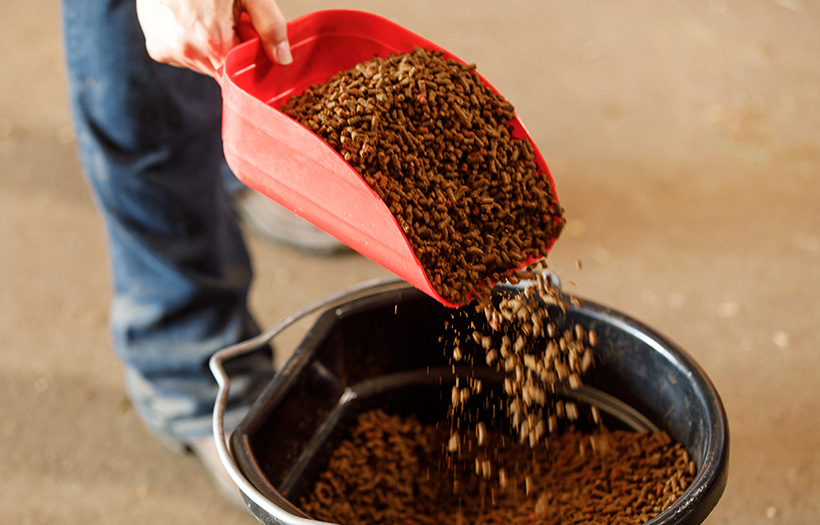Horse Feeds & Supplements: What to feed?

Horse owners often wonder if they are providing enough nutrition to their horses. In today’s world of hundreds of supplement selections available at the local tack shop or on-line, owners can start to feel as if they must be doing something wrong if they aren’t supplementing the normal hay and grain rations provided. Here’s a few key tips to make sure you are doing everything right for your favorite equine friend – keeping in mind, of course, that quality hay/pasture fed at approximately 1.5% of body weight is the key base to all horse rations.
Feeding a commercially prepared grain:
- There are a myriad of choices available on the market today, to fit all types of horses. Work with your local feed retailer, or contact your feed company of choice, for assistance in selecting what suits your horse best.
- Then, make sure you are feeding within the directions on the feed tag or bag.
- If you are feeding above the recommended range in order to keep condition on your horse, consider moving up to a higher fat feed that packs more calories per pound.
- On the flip side, and much more common, is feeding below the recommended feeding allowance because the horse is an “easy keeper”. In that case, the concentrate is not providing enough of the nutrients for the horse, and you should look for a lower calorie or lower feeding rate product to ensure your horse is receiving the nutrition it needs.
Feeding supplements:
- If you are feeding a quality commercially prepared feed, and you are feeding within the recommended amount for your size horse, then vitamin and mineral supplements are not needed, and often recommended against.
- There are a host of nutritional inter-dependencies, such as copper and zinc or calcium and phosphorus working together, that commercial feed companies account for when designing products, and adding a vitamin and/or mineral supplement can interfere with those ratios and potentially cause problems.
- Gut health, as well as hoof & hair coat, supplements abound. Before you buy one, check your feed tag to see what it might already be providing. Many premium horse feeds today already contain yeast and/or probiotics for gut health, and several contain biotin & methionine – the two key components of a lot of hoof supplements. Depending on your feeding program, you just might save time & money by not needing to supplement those.
- Joint and other supplements – while good joint health starts with proper nutrition from a young age (think “an ounce of prevention is worth a pound of cure”) many horses require additional support. However, there are limitations on what feed companies can put in to feeds, so these are often necessary as “extras” in the diet.
